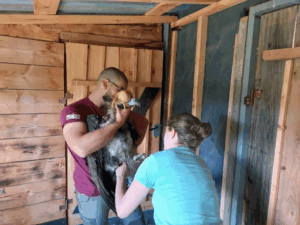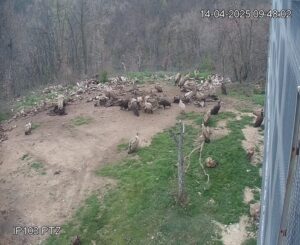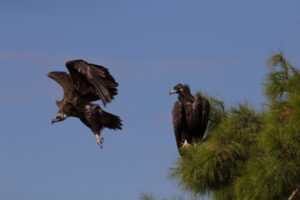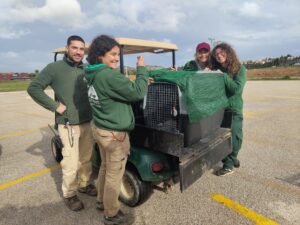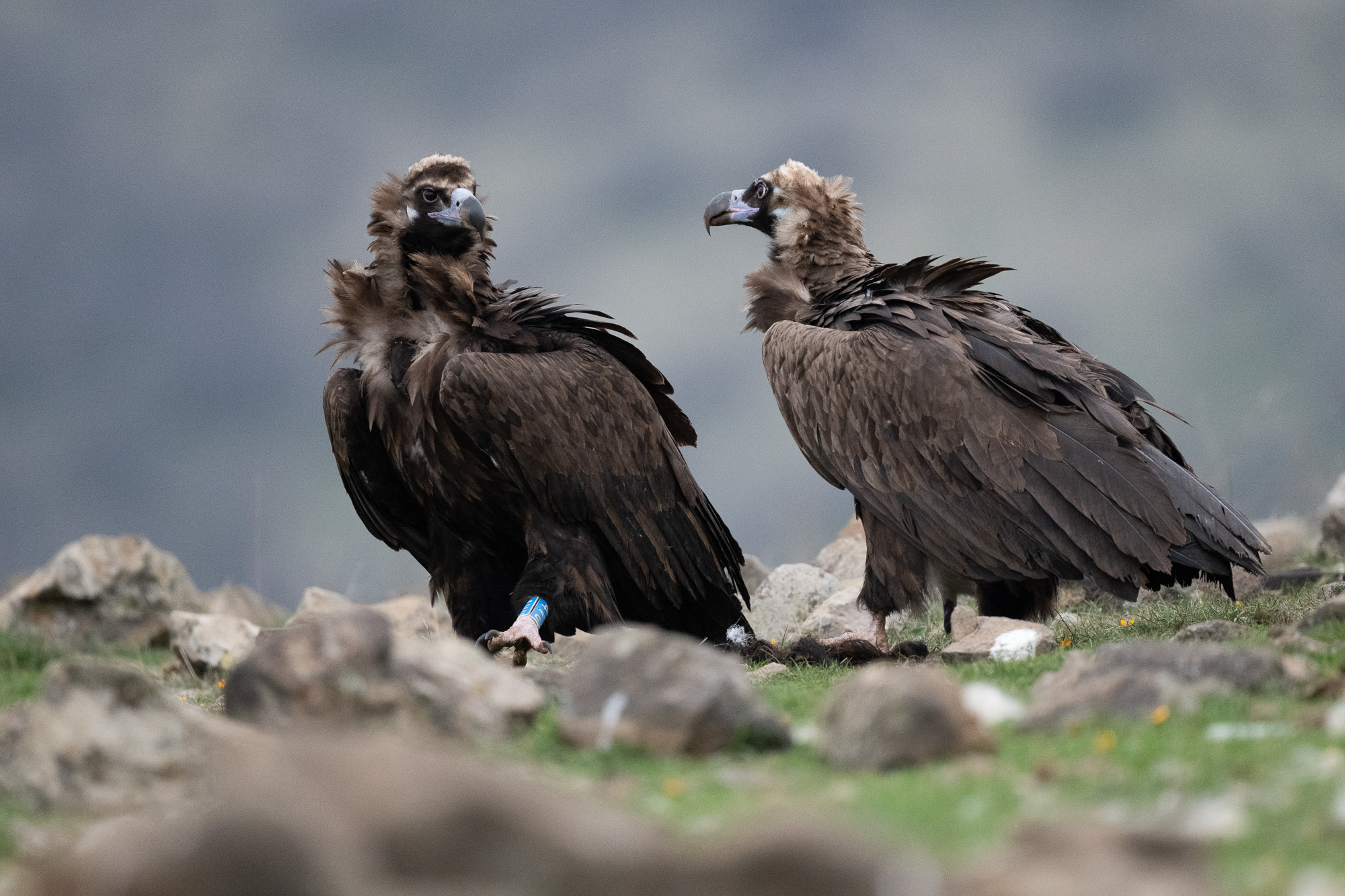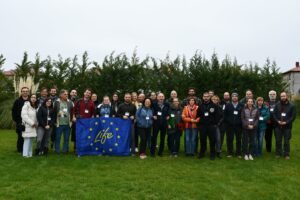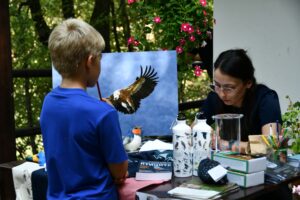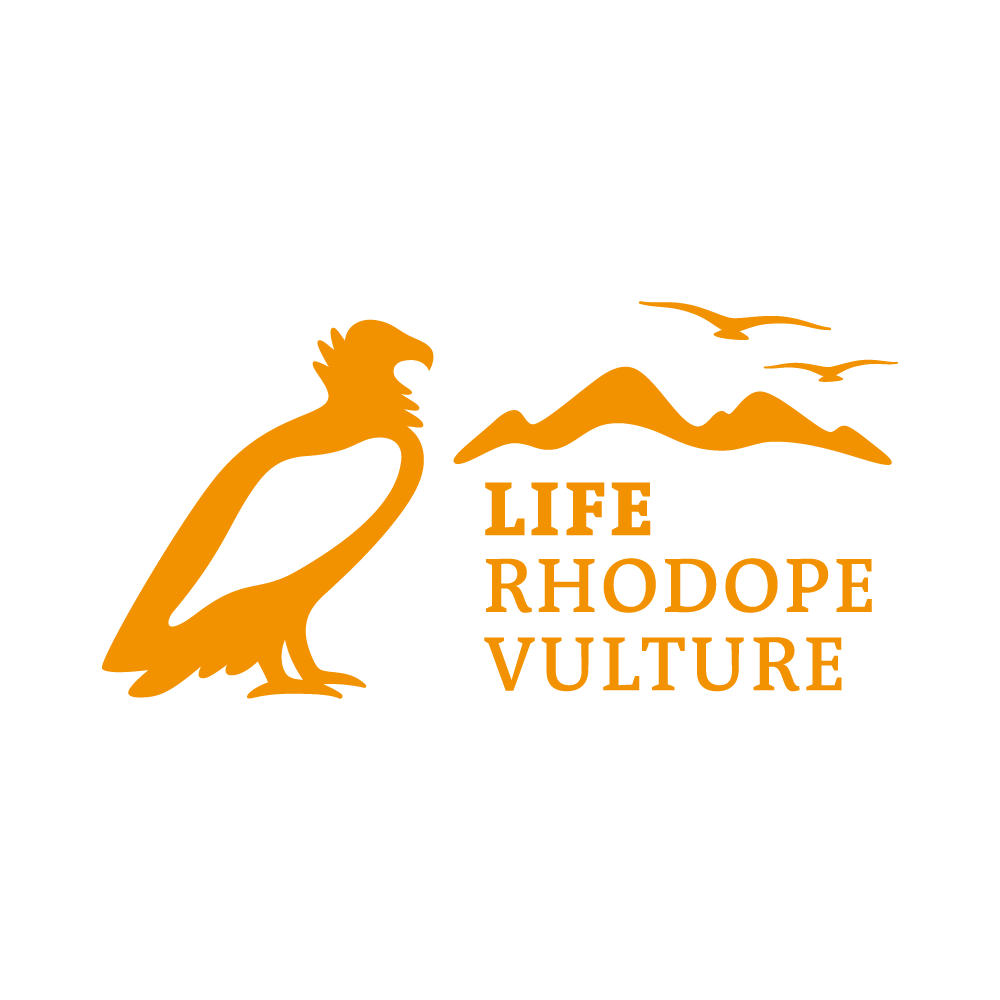
| Project period | June 2024 to May 2029 |
|---|---|
| Project area | Rhodope Mountains (Bulgarian-Greek cross-border region) |
| Target species | Cinereous Vulture |
Until the last decade of the 19th century, Cinereous Vultures (Aegypius Monachus) were widely distributed across the Balkans. Unfortunately, habitat loss, poaching, and reduced food sources, drove the species closer to extinction. In Bulgaria, in particular, the last breeding pair was documented near the Studen Kladenets reservoir in 1993. Today, the last natural colony of Cinereous Vultures in the Balkans is located in the Dadia National Park in Greece. The LIFE Rhodope Vulture project is dedicated to the recovery of the Cinereous Vultures population in the vast cross-border Rhodope mountains, between Bulgaria and Greece. The project aims to increase food availability for the species and address human wildlife conflicts, which often indirectly affects vultures. Upon creating the conditions for the Cinereous Vultures to thrive, the project will reintroduce birds from Spain to establish a new colony in Bulgaria and conserve the Greek colony in Dadia-Lefkimi-Soufli National Park. Lastly, the project aims to foster cooperation among local businesses, conservation initiatives, and stakeholders, and raise awareness about the ecological benefits of Cinereous Vultures.
LEARN ABOUT THE TARGET SPECIES
The project team not only targets immediate threats but through comprehensive conservation strategies, it also aims to create a foundation for the long-term recovery and expansion of Cinereous Vultures across their historical range and foster local and international cooperation.
Co-funded by the LIFE Programme of the European Union and the Rewilding Europe, the LIFE Rhodope Vulture team will implement releases promoting distribution expansion, anti-poison measures, boost of food availability, promotion of lead-free ammunition, and energy infrastructure safety initiatives.
ENHANCING FOOD AVAILABILITY
The project focuses on increasing the natural food base for Cinereous Vultures and restore its food chain. First it establishes new populations of wild herbivores, and work on wildfire prevention. It also aims to reduce the dependence of Cinereous vultures on farm animals’ carcases and improve the feeding conditions for Cinereus vultures involving the local communities.

THREAT MITIGATION
GPS transmitters provide essential data for assessing the environmental impact of electrical infrastructures and identify threat hotspots for vultures. In association with spatial data, the project involves anti-poisons and monitoring trained dog units to patrol critical areas and look for poaching incidents. In addition, the project organises national and international training sessions and promotes the use of lead-free ammunition among the hunters in the project area.
Human-wildlife conflict is another potential threat for vultures. To mitigate this potential threat, the project cooperates with local stakeholders to reduce the conflict with wolves and decrease the competition between livestock farmers and semi-wild horses.

ESTABLISHING A NEW COLONY IN BULGARIA AND SUPPORTING THE EXISTING GREEK COLONY
The project aims to establish a second Cinereous vulture colony in the Eastern Rhodopes, translocating individuals rescued in Spain to Bulgaria. It will reduce the risk of local extinction and improve the survival of Cinereous Vultures that disperse from other areas.
The project team carries on monitoring and wildfire preventions actions also in the Dadia National Park colony in Greece. The main objective is to reduce the risk of nestling losses in the colonies in case of wildfires.

PROMOTING LOCAL SUSTAINABLE ECONOMIES
The project fosters cooperation among local businesses, conservation initiatives, and stakeholders to develop a sustainable economy that benefits both local communities and nature.

Co-funded by the LIFE Programme of the European Union and the Rewilding Europe, the LIFE Rhodope Vulture is coordinated by Bulgarian Society for the Protection of Birds (BSPB) and the participation of Rewilding Rhodopes Foundation.
The project duration is 5 years, from June 2024 to May 2029. The total budget is €4,160,118 Euro.
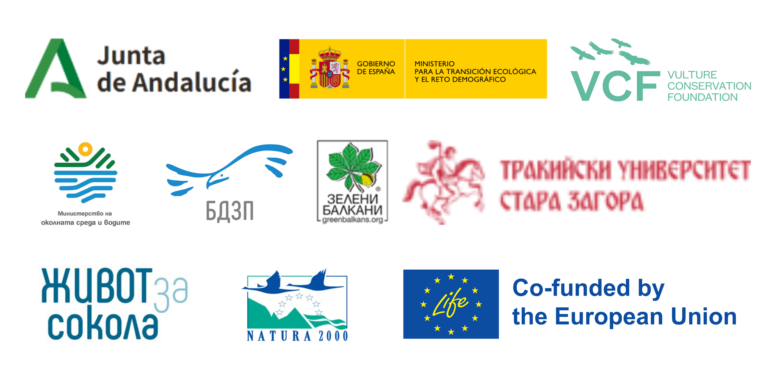
Latest project news
The LIFE Rhodope Vulture project continues its work on restoring...Read More
The LIFE Rhodope Vulture project recently released six Cinereous Vultures...Read More
Almost two years after a major wildfire hit the Evros...Read More
Thanks to a remarkable international collaborative effort, a young female...Read More
This February, in a heartening development for wildlife conservation, a...Read More
The LIFE Rhodope Vultures Project, presented in September during the...Read More
A three-day Vulture Festival held in Madzharovo, Bulgaria, has marked...Read More

